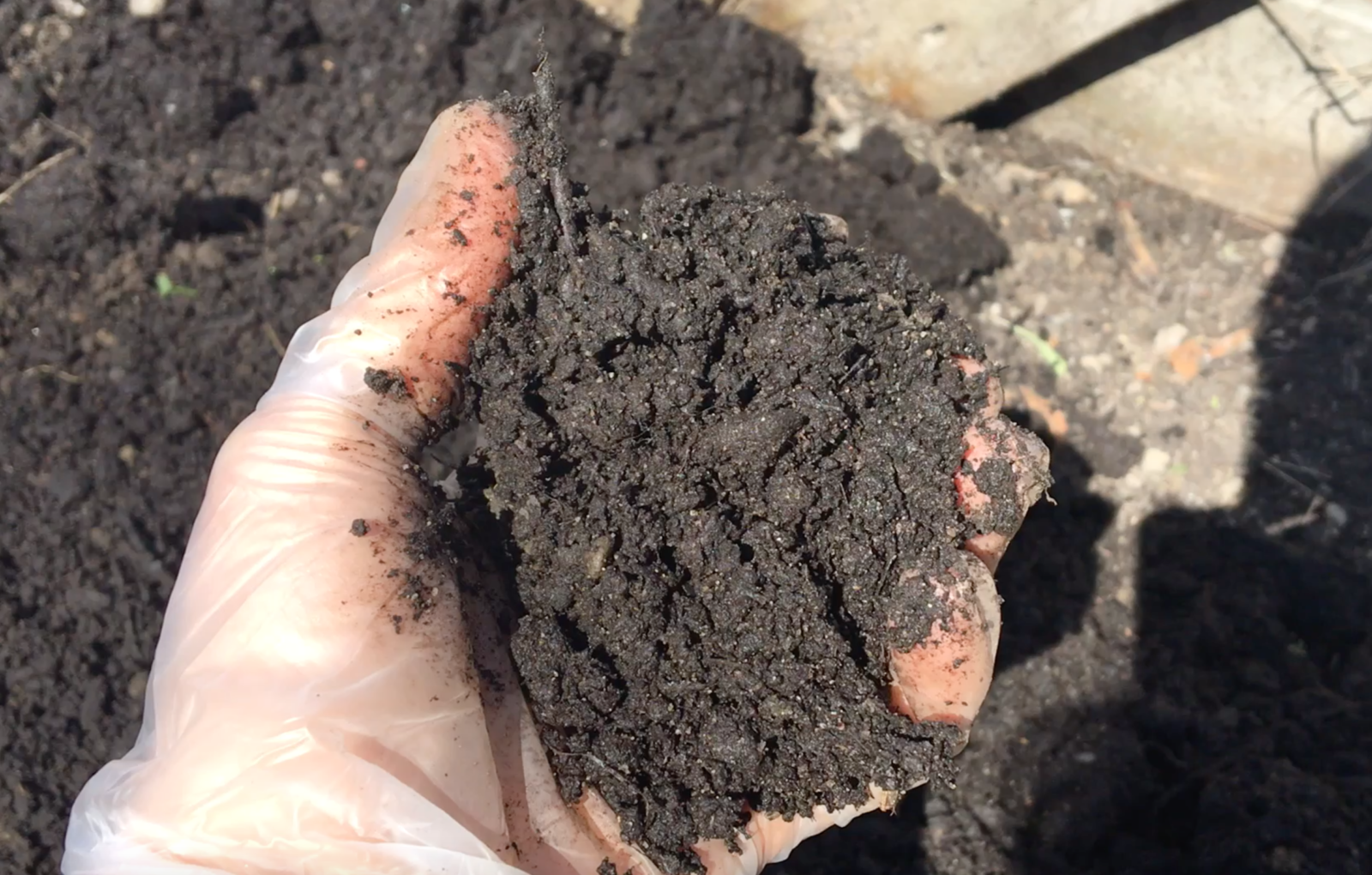What is Compost?
Compost is created by decomposers called microbes that eat organic material. These microbes produce ‘leftovers’ and give off energy.
Compost is created using a simple formula – ‘brown stuff’ plus ‘green stuff’ plus air plus water. The brown stuff is mostly dead or dried up. It is high in carbon and includes leaves, wood chips, pine needles, straw, and shredded newspaper. Green stuff is still living and wet. It is high in nitrogen and includes vegetables, grass clippings (preferably with no pesticides), tea bags, and coffee grinds (although not green!). A 3:1 ratio of carbon to nitrogen is ideal when creating the inputs for compost.
The following items should not be added to your compost: meat, cheese, oils, pet droppings, diseased plants, roots, bones, milk, fish, grains, beans or bread.
Creating Compost
To create compost, create a pile of your brown stuff and green stuff in a 3:1 ratio. Turn the pile every week and ensure the heap has air and is kept moist with water. Over time, the microbes will break down the heap and create compost, also known as ‘black gold’ to many farmers or gardeners. The time it takes to create compost varies from weeks to a year depending on many conditions.
The Benefits of Compost
Composting helps the environment by:
- Reducing the water volume that goes into landfills.
- Increases soil quality by adding nutrients to the soil.
- Saves water by helping the soil hold moisture.
Reducing Waste Volume
Composting is not simple. It requires some effort and the development of new habits when it comes to sorting your garbage. As Americans, we are still adjusting to recycling. We are still figuring out what plastics, glass, and paper our Towns can or cannot recycle and how to sort that out each week in our garbage cans. Figuring out what can be composted and then managing composting bins takes recycling to a whole new level!
However, the more we make the effort to compost, the more we decrease what we are throwing into our oceans and landfills. And if you don’t want to create composting bins, there are all sorts of indoor composting concepts that are being marketed today.
Once you produce compost, you can use compost in your garden and in your yard to support all the plants and trees that you are growing.
Compost Helps Our Soil
Compost adds significant nutrients and organic matter to our soil. It is a nutrient-rich soil conditioner that includes the following benefits:
- Contains macro and micronutrients often absent in synthetic fertilizers.
- Releases nutrients slowly—over months or years, unlike synthetic fertilizers.
- Helps bring pH levels to the optimum range for nutrient availability to plants.
- Compost is full of tiny air channels & pores that hold air, moisture and nutrients which helps sandy soil retain water and nutrients. Our Long Island soil is very sandy so compost has a significant impact on local growing.
- Brings and feeds diverse life in the soil including bacteria, fungi, insects, and worms. This life supports healthy plant growth and keeps the soil well aerated.
- Compost may suppress diseases and harmful pests that could overrun poor and lifeless soil.
- Because compost increases soil’s ability to retain water, it then decreases runoff. Runoff pollutes water by carrying soil, fertilizers, and pesticides to nearby streams.
- Compost encourages healthy root systems, which also decrease runoff.
If you cannot make your own compost, locate a good organic compost source to add to your garden. If using bags of soil, we prefer McEnroe’s Organic Compost. If you need a large amount of compost, Long Island Compost is a great, local source for organic compost. Compost is the perfect way to help contribute to the regeneration of our Earth’s soil. Help contribute!
